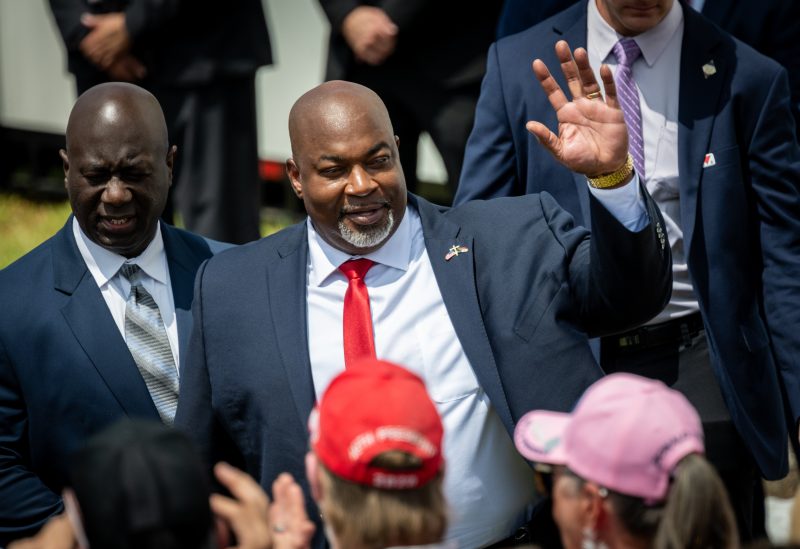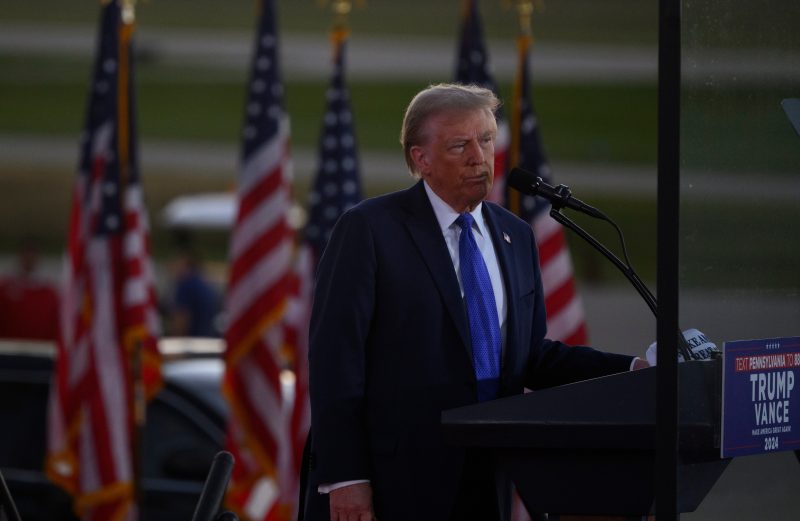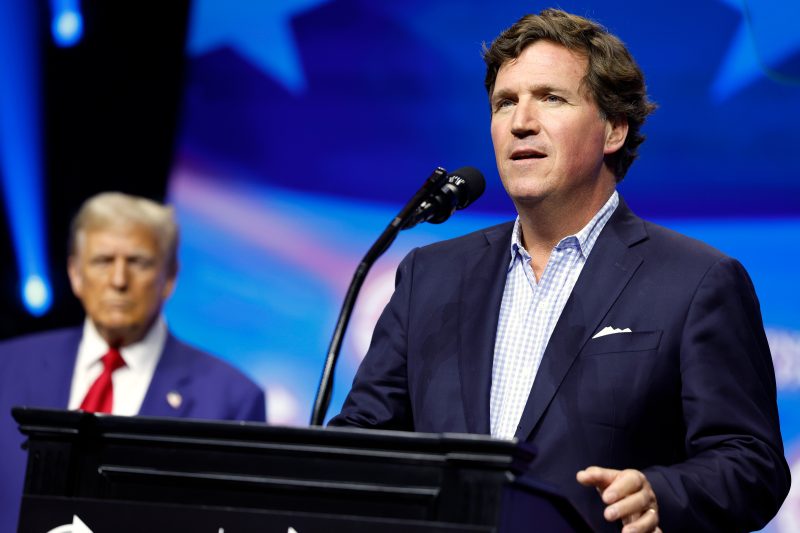
Could Mark Robinson actually damage Trump?
The Republican Party is apparently stuck with Mark Robinson.
Some Republicans and people working on behalf of Donald Trump’s campaign pushed Thursday for the North Carolina lieutenant governor to drop out of the governor’s race there amid ugly allegations about decade-old posts on a pornographic website, but Robinson has not done so. The deadline passed at midnight for the party to be able to replace him as the nominee. Robinson has been defiant and insisted that the posts weren’t from him.
With Robinson’s decision to press on, the question is less what it means for the governor’s race — in which Robinson already trailed by double digits in most quality polls — than what it means elsewhere.
Most notably: Could this damage a Trump campaign that might have preferred to rid itself of this nuisance?
It’s complicated, but Robinson’s decision to stick it out gives the Trump campaign and Republicans reason to fret. North Carolina is crucial to Trump’s most readily apparent path to victory — which runs through it, Georgia and Pennsylvania — and every little bit counts. Vice President Kamala Harris’s campaign, meanwhile, appears to sense a political opportunity, judging by its decision Friday to launch a TV ad tying Trump to Robinson.
The dynamic at play here is called a “reverse coattails effect,” which basically means that a candidate running below the presidential race on the ballot could damage the top of the ticket. The term traces back to Adlai Stevenson’s Democratic presidential candidacy in 1956.
The conventional wisdom is that things mostly happen in the opposite direction: a bad candidate at the top of the ticket harming candidates further down the ballot. After all, the presidential race is generally voters’ No. 1 priority.
But those two effects aren’t mutually exclusive, and just because one is more prominent doesn’t mean the other doesn’t exist. North Carolina was decided by just over one percentage point in 2020, so even a slight shift in voter preference or turnout caused by disillusionment with Robinson could matter. And as noted, North Carolina is that important.
The first thing to note is that we’re in largely uncharted territory. While we’ve seen flawed candidates before, we’ve seen a growing number of Trump-backed ones in recent years — to the point where they’ve plausibly cost the GOP control of the Senate more than once.
But we’ve also seen how other Republicans can persevere on the same ballots. Plenty of voters do split their tickets. That was especially the case in 2022 in states such as Arizona, Georgia, New Hampshire, Ohio and Pennsylvania. Other Republicans ran an average of between six and 25 points better than the GOP’s flawed Senate and gubernatorial candidates in those states.
Those split tickets already loomed large in the 2024 election, with GOP Senate candidates consistently running worse than Trump. When President Joe Biden was still in the race but voters were disillusioned with him, his campaign hoped a “reverse coattails effect” might help him.
It’s clear that the vast majority of would-be Trump votes in North Carolina won’t be affected by Robinson’s candidacy — that plenty of voters will probably split their tickets between Trump and Democratic gubernatorial candidate Josh Stein, just as the 2022 voters described above did. Polls already show Trump running way ahead of Robinson, and a recent Fox News poll showed Stein winning the support of 13 percent of Trump voters.
But that doesn’t mean zero votes will be affected. There’s reason to believe they could be.
For one, Robinson is just that unpopular. A recent YouGov poll showed just 3 in 10 voters had a favorable opinion of him, vs. about half who disliked him. Women were twice as likely to dislike him as to like him. While just 8 percent of independents had a “very favorable” opinion of him, 47 percent had a “very unfavorable” one.
Those are awful numbers — worse even than many of the 2022 GOP candidates described above. And all of that was before the most recent allegations, which could drive Robinson’s numbers down further.
Another key factor is how easy it will be to attach Trump to him. This isn’t just a case of Trump endorsing a random candidate and their paths never otherwise crossing; Trump has not only appeared with Robinson, but has called him “Martin Luther King on steroids” and urged voters to “cherish” Robinson, who is “like a fine wine.”
What sorts of Trump voters might this turn off? Trump has maintained his political stature over the years despite his own mounds of baggage. But it’s not as if all his supporters are true-believer MAGA types. He also relies on more traditional Republicans who don’t love him but support the team. (Recall that during the GOP primaries, as many as 1 in 5 voters continued voting against him even after Nikki Haley dropped out.)
In North Carolina, that “team” could look even less appealing than Trump alone. Those voters will be confronted with not just a presidential candidate they might not love, but a gubernatorial candidate they might have even less regard for.
Robinson’s presence on the ticket could bolster the Harris campaign’s strategy of promising to turn the page on the chaos and extremism of the past nine years. It could also make it easier to tie Trump to the hard-line positions on issues like abortion that he has sought to distance himself from but that Robinson has embraced.
It might not be enough to get Democrats over the line in a stubborn state they’ve won just once since 1976 (in 2008), but it surely doesn’t hurt. And if it does help them tip the state and snatch its 16 electoral votes, that would severely hamper Trump’s path to victory.



